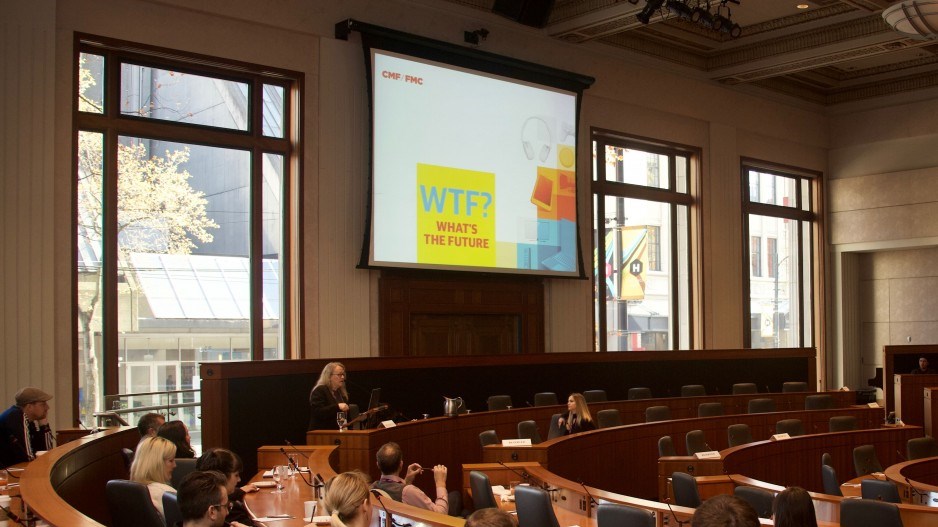Producer Dana Johl recalls an uneasiness blanketing Vancouver’s documentary TV and factual TV series industry following a series of acquisition deals a few years ago.
In 2014, Toronto’s Entertainment One Ltd.’s (LSE:ETO) (eOne) had taken over Paperny Entertainment and Force Four Entertainment, but by 2017 they had been folded into eOne’s own television banner based in Toronto.
Two of the cities biggest producers, responsible for notable series such as Food Network’s Chopped Canada, History channel’s Yukon Gold and National Geographic channel’s Border Security: Canada’s Front Line, were effectively dissolved.
“It was a bit of an uncertain time with fewer production companies creating content in Vancouver,” said Johl, vice-president of production for Great Pacific TV’s lifestyle division. “A lot of the people that are in this community were nervous.”
Her company, which is behind series such as Highway Thru Hell, was also acquired in 2014.
But in that case, Vancouver-based Thunderbird Entertainment Group Inc. (TSX-V:TBRD) took over and kept the team based locally as it built up its own diversified portfolio of companies spanning children’s animation to scripted dramas.
Johl, who offered a master class in line production at the annual FactualWest conference November 1, said that cloud of uncertainty is now beginning to lift in Vancouver.
The skills development summit saw local and global industry professionals gather in Vancouver November 1-2 to offer insights on developing and producing documentary and factual TV series, navigating financing and working with network executives.
It was the first time in its four years that the conference has expanded to two days from one.
“With FactualWest growing and being a bigger event, I think we’re getting that excitement and confidence back, and people are really feeling production growing again in the factual industry in Vancouver,” Johl said.
The Canadian Media Producers Association’s Profile 2018 found that production volume in Canada for the lifestyle and human-interest genre totalled $518 million in 2017-18, down from the $550 million total in the previous fiscal year.
But documentary TV was on the ascent, rising to $251 million from $244 million between fiscal 2016-17 and fiscal 2017-18.
Meanwhile, on the last day of the conference, Creative BC and the Rogers Group of Funds announced the launch of an $800,000 fund to support projects during their early development phase, before they’re given the green light.
The Rogers Group of Funds is supported by Rogers Communications Inc. (TSX:RCI.B), while Creative BC serves as a non-profit agency charged with promoting the province’s various entertainment sectors.
The organizations said the new fund would allow for “a unique opportunity” for partnerships with B.C.-based Knowledge Network Corp. and the National Film Board – Pacific Region.
“In the giant boom of production the squeeze is on as to who owns the intellectual property,” said Knowledge Network president and CEO Rudy Buttignol, whose publicly funded broadcaster has a mandate to showcase stories representing B.C.
“Will British Columbian voices be represented? That’s what we’re there to do in our own small, modest way to make sure British Columbia-based producers are telling British Columbian stories.”
Among the factual TV series Knowledge has acquired for broadcast is Emergency Room: Life and Death at VGH, which came out of Vancouver’s Lark Productions Inc.
“We, along with the broadcasting sector, are regulated with requirements to fulfil Canadian content to support the industry, and we’re up against global competition that has no rules. The streaming platforms are free of taxes, free of obligation and have had this huge advantage,” Buttignol said.
“It’s a hard business to compete [in] normally. Competing with, again, unregulated services is really untenable in the long run.”
He said he would have liked to have seen past federal governments step up earlier but fears it’s now too much like closing the barn door after the horses have bolted.
“On the original production side it’s more challenging than it’s ever been because of globalization,” said Field and Post Vancouver president John Ritchie, whose industry organization facilitated the FactualWest conference.
“Once upon a time it was a pretty protected industry where you could produce just for Canadian television networks and have a very viable business. Now you need to make those connections with those streaming companies, which are usually L.A.-based.”




